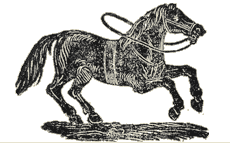Event title:
Benefit performance and academy [Vorstellung und Akademie] in aid of the Children's Hospital [at St Lazarus]
Venue: Žofín Island (Žofín Hall)
Event type: Art music culture
Date: 15/04/1850
Keywords: Publishing and printing, Sculpture and other plastic arts, Theatre (non-music), Audience attendance, Benefit and charitable events, Genres - Orchestral music, Genres - Secular solo vocal music, Genres - Solo and concertante instrumental music, Genres - music theatre and entr'acte music, Public performance events, Charitable institutions
Beneficiary:
Children's Hospital at St Lazarus
Programme comprising the following music:
- ensemble of Imperial First Field Artillery Regiment of Franz Joseph: participating ensemble
- SVOBODA, František Václav: director of ensemble, conductor
Commentary:
Bohemia 12/4/1850 published advance news of this benefit ‘performance and academy’ in aid of the Children’s Hospital at St Lazarus. The article reported the date, venue and programme of the event. The programme was to include Der Brockenstrauß, a dramatic farce in one act by Putlitz [ein dramatischer Scherz], to be performed following the Overture to Zampa. The unidentified Andante by Dreyschock was to be played in conjunction with the display of a tableau entitled ‘Ave Maria after Ruben’. Similarly, the Schlummerlied by Pisaržowitz [Pisařovic] was to accompany a tableau ‘Die Söhne Eduards ... nach Hildebrand’, and the vocal quartets by Kreutzer a tableau after Winterhalter entitled Il Decamerone. No individual soloists who were to participate in the event were listed. However, the report noted that the performance of the musical items would be given by the band of the Artillery Regiment of Franz Joseph. Owing to the very worthy charitable purpose of the event, it was anticipated that a large audience would be attending.
A review, signed ‘V.’, of the event appeared in Bohemia 17/4/1850. The first half of this substantial text outlined the social importance for hospitals for sick children, the situation in Prague of such health institutes being mainly privately funded, and then described the funding and background of the Children’s Hospital at St Lazarus in the city. Founded by Dr Kratzmann and run by Dr Löschner, the body was noted to have hitherto been funded primarily out of the private resources of the latter. Therefore the arrangement of this concert for the benefit of the hospital was considered to be of the highest importance for securing its future. ‘Many kind-hearted [hochherzige - lit. high-hearted] Ladies and Gentlemen from local high society had united and attended for the benefit of the said [hospital] the performance in Žofín Hall.’ Of the works given in the programme, the review commented that the ‘innocent, painstakingly put together, yet really entertaining dramatic trifle “Der Brockenstrauß” of Putlitz [was notable] on account of the special interest in the persons [being] depicted. About such depictions the public critic remains silent, but the Ladies and Gentlemen [of the audience] certainly did not demonstrate any [such] indulgence.’ The rôles were then listed as ‘Miss Hortensia, Gouvenator, Mrs Rose, Wirthin in Harzburg, the two gentlemen Fichtenberger, Wilhelm Junius and Malvina May, the last of whom was given by Mrs Küchenmeister-Rudersdorf.’ Although they were all noted to be familiar from lithograph and copperplate printing, the three tableaux that were displayed with musical accompaniments were all received with enthusiasm, the critic reporting that the curtain had to be raised three or four times. An appropriate accompaniment to the first picture was the ‘exotic vocal quartet of C. Kreutzer’; the second, Auber’s “Schlummerlied”, suffered only from the clarinet evidently not being accompanied. The ‘composition by A. Dreyschock to the beautiful picture by Ruben, performed on the physharmonica, magnified the poetic effect of this splendid tableau.’ Music was played in the intervals between the tableaux ‘by the band of Mr F. Swoboda [Svoboda], with compositions by Mendelssohn, Herold, Dreychock (an orchestrated Romanze, unless we are mistaken “L’absence”), Mozart and Škraup [Škroup]. A concertante piece given with great virtuosity on the Flügelhorn obtained particular applause.’
The programme record comprises the works listed by the original Bohemia 12/4/1850, incorporating further identifying details from the Bohemia 17/4/1850 review. The inclusion of a work for Flügelhorn in the programme was not mentioned by the earlier report. The solo performer of this item was not specified.
Summary of sources:
Bohemia (12/04/1850)Bohemia (17/04/1850)



